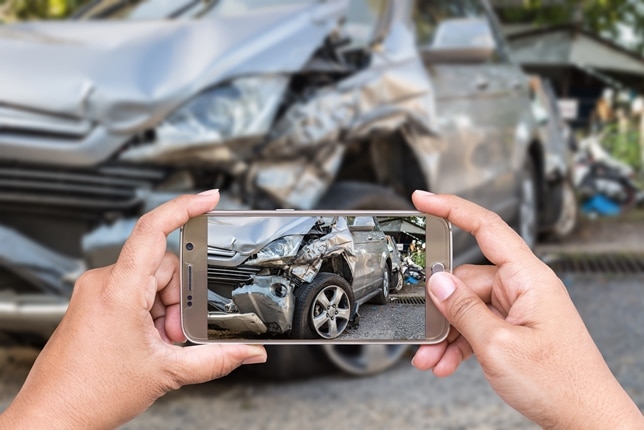What happens if you don’t exchange information after an accident?
While it may seem innocent, not exchanging information after an accident has many implications.
What Information is Important After an Accident?
After an accident, it’s essential that you and the other driver exchange information. Some of the most important information being:
- Full names
- Physical addresses
- Phone numbers
- Insurance information
- Driver’s license numbers
- License plate numbers
It’s also a good idea to take photos of both cars. You should also make a mental note of how the other driver looks. Write a short description of what they look like.
Sometimes, however, the other driver may not be willing to trade information for a number of reasons. For some, it could be that they’re trying to avoid involving the police while others will be trying to avoid having their license.
What Happens if You Don’t Exchange Information After an Accident?
Is there anything wrong with not exchanging information after an accident?
The short answer is yes.
Not exchanging information is dangerous. One of the main reasons being you’ll lose your chance of getting compensation, both for the damage to your car and any injuries you may have incurred. You’ll need the other driver’s information, proof that it occurred (usually in the form of an accident report), and that you were not the cause of the accident that occurred. Without the right information, this is hard to demonstrate.
So, while it may seem diplomatic to solve the issue between the two of you, it’s a dangerous thing to do. It will cost you financially and may also cost you your reputation.
What to Do if You Didn’t Get the Other Driver’s Information
Is it the end of the world if you don’t get the other driver’s information?
Not at all. There are certain steps you can take to help build your case. Here are a few of them:
1. Take Notes
One of the first things you should do is write down everything you remember about the accident. Don’t wait till you get home, do it right there at the accident scene. Note down as many details as you can about the accident, the scene, and the other driver. If you wait, you may forget important details.
2. Take Photos and Videos
One of the biggest advantages of smartphones is that they make it easy to record information. Use yours to take photos and videos of the accident scene, including the damage done to your car and the surrounding area of the accident. Visual evidence is a powerful and very convincing method of proving your case.
3. Look Around for Witnesses
In many instances, it’s difficult for an accident to go unnoticed. Look around for witnesses who either recorded the accident or can help you fill in some details you missed. Particularly if it’s a hit and run, they can help you get a clearer description of the other car. It’s also a good idea to get the witness’s contacts. However, if they are not interested, you don’t have to force them.
4. Get in Touch with Your Insurance Company
Even if you don’t manage to exchange information, you still need to get in touch with your insurance company. You must let them know about the accident. Your insurance company will help take some of the work of tracing the other driver and getting your compensation.
But will your auto insurance policy cover you if you don’t get the other driver’s insurance information?
This is one of the reasons you need to ensure you have enough coverage for yourself. Without detailed information about the other driver, you may not manage to get your claim. In other cases, the other driver’s insurance may not be able to cover you.
5. Talk to a Car Accident Lawyer
Trying to sort out a car accident claim on your own can be daunting. It’s worse when you don’t have the other driver’s details. That’s why you must consider hiring a car accident lawyer. They can help you ascertain whether you can manage to get compensation or whether your case is weak.
Do You Have to Call the Police After a Minor Car Accident?
Another question many people ask is whether or not to call the police after a minor car accident. The simple answer is yes. If there are injuries or property damage worth $500 or more, you should report the accident. Filing a report is crucial to bolstering your insurance claim.
However, there are times the other driver may try to encourage you not to report the accident. They’ll try to get you to just handle it between the two of you. Don’t give in to that. Without evidence of a police report, your insurance company may reject your injury claim. Reporting the accident will also help the at-fault driver to leave their information at the scene of the accident.
And if there are any injuries you must immediately call for medical assistance.
What Happens if You Don’t Exchange Information After an Accident
We’ve come full circle to the question that started us out on this journey — what happens if you don’t exchange information after an accident?
Getting information at the scene of an accident is critical. It will protect you from the other driver laying false claims against you. It will also help you successfully process your insurance and as well as file personal injury claims.
Work with us for more accident-related tips and advice. We’ll help you navigate how to work out the processes required after. Whether you live in California, Florida, Georgia, Indiana, New York, Tennessee, Texas or other places our experts here at Auto Accident Report can help.
